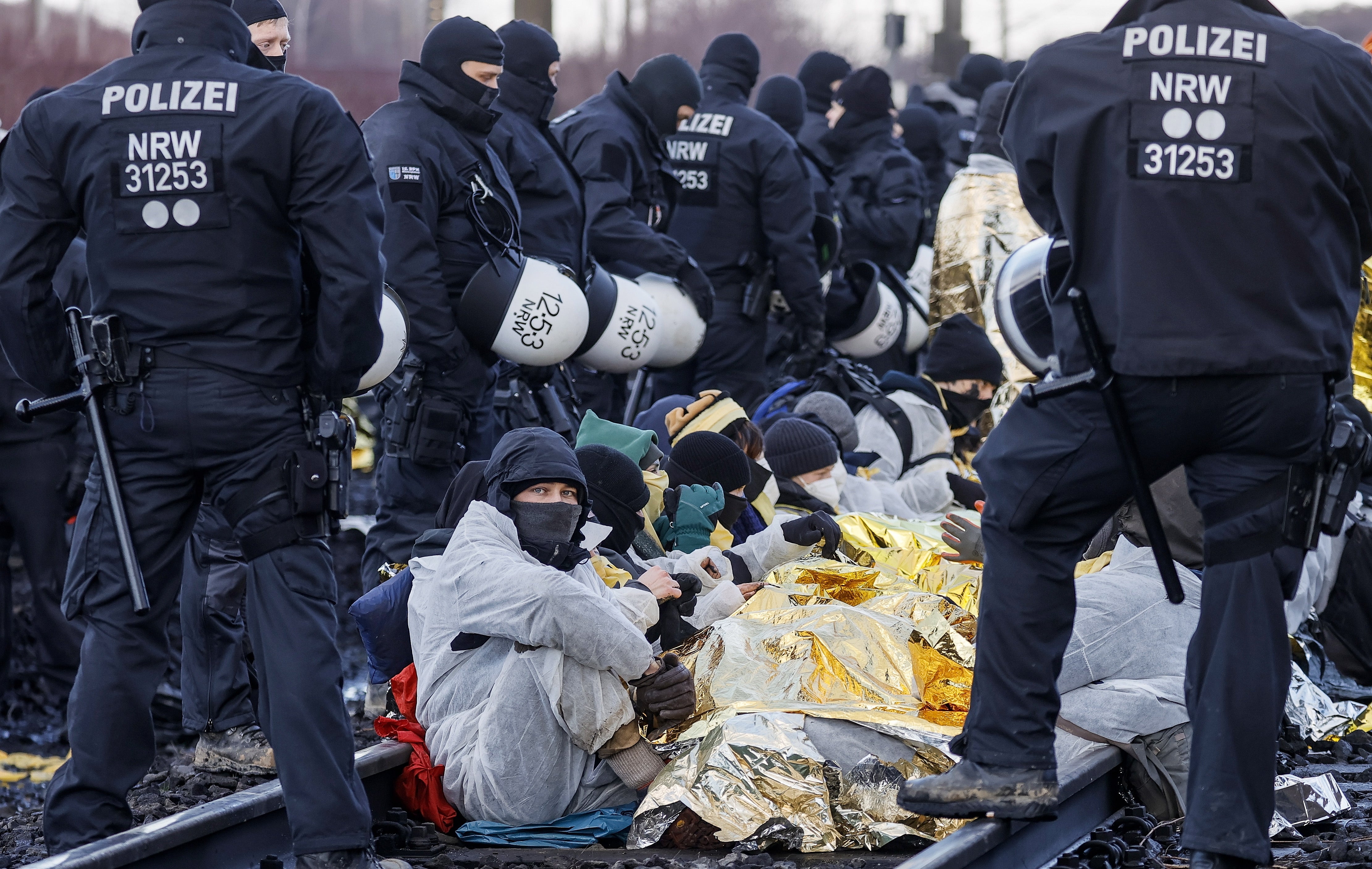
News of climate activist Greta Thunberg’s detention by police near the German village of Lutzerath has drawn further attention to controversial plans for a coal mine’s expansion, which she has labelled a “betrayal” by the government.
While perhaps the most recognisable, the Swedish campaigner is among thousands of people who have been compelled to take part in demonstrations at the North Rhine-Westphalia village in recent years, which has become a flashpoint for German climate activists seeking an end to fossil fuels.
The hamlet is among numerous centuries-old settlements to have spent decades under the hungry shadow of the Garzweiler coal mine, and in 2013 a federal court ruled in favour of the fossil fuel site being expanded – paving the way for nearby villages to be destroyed and hundreds displaced.
While most residents in Lutzerath accepted compensation and moved away, one farmowner named Eckardt Heukamp refused to move until a court ruling last March, and his cause was soon taken up by climate activists who began flocking to the hamlet some two years ago.
But the site was violently evicted last week by riot police and bulldozers, as thousands marched to show their discontent over the village’s demolition and coal mine’s expansion, now emblematic of tensions over Germany’s energy policies in the face of the climate and inflationary crises.
By Tuesday, even the handful of demonstrators remaining in treehouses and an underground tunnel had been removed, with scores allegedly left injured in clashes between police and protesters.
The plans to demolish Lutzerath are part of a “compromise” deal reached between the government and energy giant RWE last year allowing it to destroy the abandoned village in return for ending coal use by 2030, rather than 2038.
The Green Party, which has power both locally and in the ruling national coalition, argues that the deal fulfills many of environmentalists’ demands and has saved five other villages from demolition.

The president of North Rhine-Westphalia told Deutschlandfunk radio on Saturday that energy politics was “not always pretty” – but that the coal was needed more than ever in light of the energy crisis confronting Europe’s biggest economy.
And Germany’s economy minister Robert Habeck insisted that Lutzerath was the “wrong symbol” to protest against, telling Spiegel on Friday: “It is the last place where brown coal will be mined - not a symbol for more-of-the-same, but for the final frontier.”
But activists argue that fossil fuels must remain in the ground to avert climate breakdown. Addressing some 6,000 protesters marching on Lutzerath on Saturday, Ms Thunberg called the mine’s expansion a “betrayal of present and future generations”.
“Germany is one of the biggest polluters in the world and needs to be held accountable,” she said, adding: “The most affected people are clear, the science is clear, we need to keep the carbon in the ground.
“When governments and corporations are acting like this, are actively destroying the environment, putting countless of people at risk, the people step up.”
Despite the eviction of the village last weekend, Ms Thunberg was reportedly among a group of protesters who remained at the site, and who were detained by Aachen Police after allegedly appearing to rush towards the ledge of the mine.
The force said that the group of demonstrators would be released that same day, saying there was “no reason to hold them for days”.
Meanwhile, anti-mining protests continued to rage elsewhere in the western state. Dozens of climate activists glued themselves to a main street in Germany’s western city of Cologne and to a state government building in Duesseldorf, while several people occupied a giant digger at the Inden coal mine.
Near Rommerskirchen, a group of about 120 activists also occupied the coal railroad tracks to the Neurath power plant, according to police and energy company RWE. Those who refused to leave the tracks were carried away, dpa reported.
Germany is expected to miss its ambitious climate targets for the second year in a row.
Additional reporting by agencies







